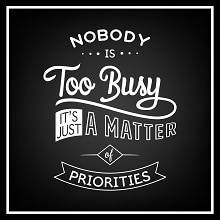2017 Retirement Plan Savings Changes
For those people that are participating in a traditional 401(k) or government retirement plan such as a 457 or 403(b), contributions will remain the same for 2017. Employees under age 50 can save up to $18,000 in the plan, with those age 50 and older socking away an additional $6,000 catch- up contribution.
IRA’s have not seen a change in many years, with the same $5500 limit and a catch-up contribution for people 50 and older of $1000.
There are other plans that will see an increase starting in 2017. For those that benefit from a traditional pension plan, the maximum annual benefit will increase to $215,000 (up $5000).
If you’re a self- employed individual or have a company you work for that has a 401(k) similar type plan, the amount that can be contributed annually is up $1000, from $53,000 to $54,000. The type of plans that benefit from this increase are Single 401(k) and SEP IRAs.
Regardless of the plan type you participate in, check to make sure you’re contributing the maximum amount. Some plans have a feature that allows your contribution to automatically increase each year, to the maximum at some point. As your wages increase, automatic contribution increases are good way to ensure your contributions increase offsetting your taxable earnings.
Retired and Kids Are Grown? You Still May Need Life Insurance

Are you responsible for taking care of someone other than yourself? If you are caring for someone else financially, such as a parent, spouse, or child, you still have a need for life insurance.
Are you still working? If you’re still working and intend to continue working for one or more years, the loss of your income could be catastrophic to others.
Do you intend to leave assets to beneficiaries when you pass? Not having life insurance in place can have a major impact financially if your beneficiaries have legal fees and taxes to pay on your estate.
Do you have debts? If you have a mortgage or other payments, life insurance could be used to pay your debts if you pass away. Your debts are not ‘forgotten’, your estate (or family) has to pay them off!
Do you have a retirement plan that stops when you die? If you receive payments from a pension or a single life annuity, when you pass your beneficiaries receive nothing. The income stream that you had does not pass to a spouse or heir, and if you are financially supporting them, life insurance is a must.
Do you plan to pay for your own funeral or final expenses? As much as you may not want to think about it, death is unavoidable. Having life insurance in place is a way to cover the final celebration of your life. In most instances, your beneficiaries filing a death claim and receiving proceeds of a life policy takes less time than liquidating retirement assets to cover the expenses.
When An Investment Is Too Good To Be True

When considering an investment, professionals working in a regulated industry never ‘name drop’ or discuss associations and individual members that they work with. It’s not ‘legal’ to name other individuals they do business with due to Federal privacy and personal information laws.
If you hear about an investment that sounds ‘too good to be true’, it is up to you to question that investment. If you ask questions and don’t have them answered in an understandable way, the person telling you the information may be changing what they are telling you, or are trying to make you feel you are not capable of understanding it. They position it as a ‘complex’ investment that you’re lucky to be invited to participate in. Investments should not be too complicated to understand, or too simple that it seems like a ‘get rich quick’ exclusive opportunity! Investing and reaping the rewards of the investment takes time and is not something too good to be true.
Regulated investments are registered, sold, and serviced by licensed professionals who have no criminal history, no bankruptcy, have received training, and participate in continuing education. As you hear about investments that are ‘too good to be true’, examine who is selling them, if they’re regulated, and do your ‘on-line’ research on the investment and the person you’re doing business with.
Are Your Priorities ‘Out of Sync’?

Protect Yourself. Aside from making good, healthy decisions for yourself, are you insured? Do you have health insurance, life insurance, property and casualty insurance? If you’re not insuring yourself and your assets and are spending money on going out every weekend instead of insurance, you have your priorities out of sync. Use your health insurance and have a preventative exam this month!
Pay Yourself First. Before you pay your bills, make sure you are saving each month for your retirement. Over the long term, you will accumulate savings that you will need later in life. Save now while you’re healthy enough to work and save.
Keep a Roof Over Your Head. Pay your mortgage or rent first; bills come second. If you have too many bills related to debt that it makes it hard to make your housing payment, assess your priorities and make a plan to get rid of them!
Learn to Say “No”. No to spending on things you don’t need, no to choosing activities that don’t benefit you or your health. Once you’ve learned to say ‘no’, it becomes easier to say ‘yes’ to things that benefit you long term.
Make a Plan. It’s been said and proven that ‘those that fail to plan, fail’. Planning can be as quick as making a list to accomplish this week, or as slow as saving money for retirement over a number of years. Without making a plan, starting, and reassessing, you are more likely to fail and do nothing. During your planning process, examine all of the areas listed above and see what you’re plan is lacking.
Prioritizing makes sense and is adjustable according to what is happening in your life. Take care of your most valuable asset first (You and your family) and don’t assume that your plan is complete without examining it periodically. If I can assist you in ‘syncing your priorities’ please feel free to contact me.





